
Laura Sanders reports on neuroscience for Science News. She wrote Growth Curve, a blog about the science of raising kids, from 2013 to 2019 and continues to write about child development and parenting from time to time. She earned her Ph.D. in molecular biology from the University of Southern California in Los Angeles, where she studied the nerve cells that compel a fruit fly to perform a dazzling mating dance. Convinced that she was missing some exciting science somewhere, Laura turned her eye toward writing about brains in all shapes and forms. She holds undergraduate degrees in creative writing and biology from Vanderbilt University in Nashville, where she was a National Merit Scholar. Growth Curve, her 2012 series on consciousness and her 2013 article on the dearth of psychiatric drugs have received awards recognizing editorial excellence.

Trustworthy journalism comes at a price.
Scientists and journalists share a core belief in questioning, observing and verifying to reach the truth. Science News reports on crucial research and discovery across science disciplines. We need your financial support to make it happen – every contribution makes a difference.
All Stories by Laura Sanders
-
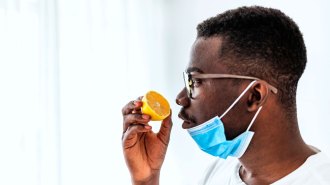 Neuroscience
NeuroscienceCOVID-19 gave new urgency to the science of restoring smell
With newfound pressure from the pandemic, olfactory training and a host of other newer treatments are now getting a lot more attention.
-
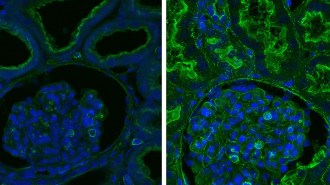 Neuroscience
NeuroscienceAn hour after pigs’ deaths, an artificial system restored cellular life
Sensors, pumps and artificial fluid staved off tissue damage in pigs after cardiac arrest. The system may one day preserve organs for transplantation.
-
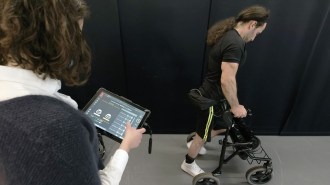 Neuroscience
NeuroscienceSpinal stimulation gives some people with paralysis more freedom
Methods that stimulate the spine with electrodes promise to improve the lives of people with spinal cord injuries, in ways that go well beyond walking.
-
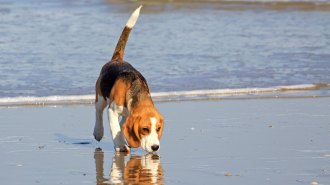
Dogs are great sniffers. A newfound nose-to-brain connection helps explain why
A new anatomical description of how smell works in a dog brain shows why they’re such good sniffers.
-
 Health & Medicine
Health & Medicine5 misunderstandings of pregnancy biology that cloud the abortion debate
The Supreme Court’s scrapping of Roe v. Wade shifts decisions about related health care to states. Accurate science is often missing in those talks.
-
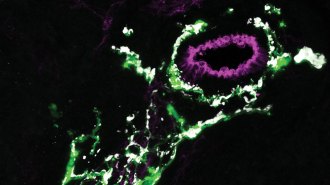 Neuroscience
NeuroscienceGlial cells may take on big jobs in unexpected parts of the body
Scientists are finding mysterious glia in the heart, spleen and lungs and wonder what they’re doing there.
-
 Health & Medicine
Health & MedicineMissing COVID-19 data leave us in the dark about the current surge
Yankee Candle reviews and wastewater testing offer indirect hints, but we’re “flying blind,” says data expert Beth Blauer of Johns Hopkins University.
-
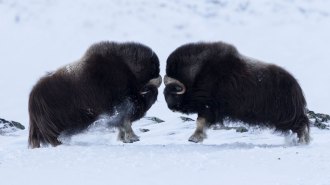 Neuroscience
NeuroscienceHeadbutts hurt the brain, even for a musk ox
Though musk oxen are built to bash, a study of the headbutters turned up signs of brain damage. But that may not be catastrophic for the bovids.
-
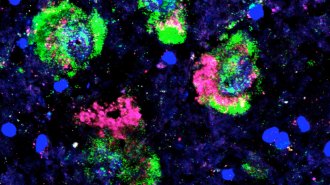 Neuroscience
NeuroscienceA very specific kind of brain cell dies off in people with Parkinson’s
Of out 10 kinds of dopamine-making nerve cells, only one type is extra vulnerable in Parkinson’s disease.
-
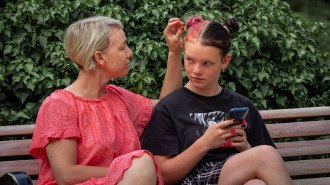 Neuroscience
NeuroscienceMom’s voice holds a special place in kids’ brains. That changes for teens
Unfamiliar voices hold special appeal for teens, a sign of a shift from a focus on mostly family to wider networks, brain scans suggest.
-
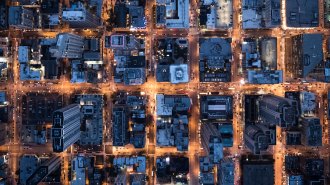 Humans
HumansWhere you grew up may shape your navigational skills
People raised in cities with simple, gridlike layouts were worse at navigating in a video game designed for studying the brain.
-
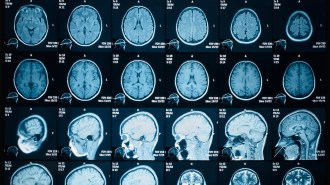 Health & Medicine
Health & MedicineWhat do we mean by ‘COVID-19 changes your brain’?
The events of our lives are reflected in the size, shape and behavior of our constantly changing brains. The effects of COVID-19 changes aren’t clear.